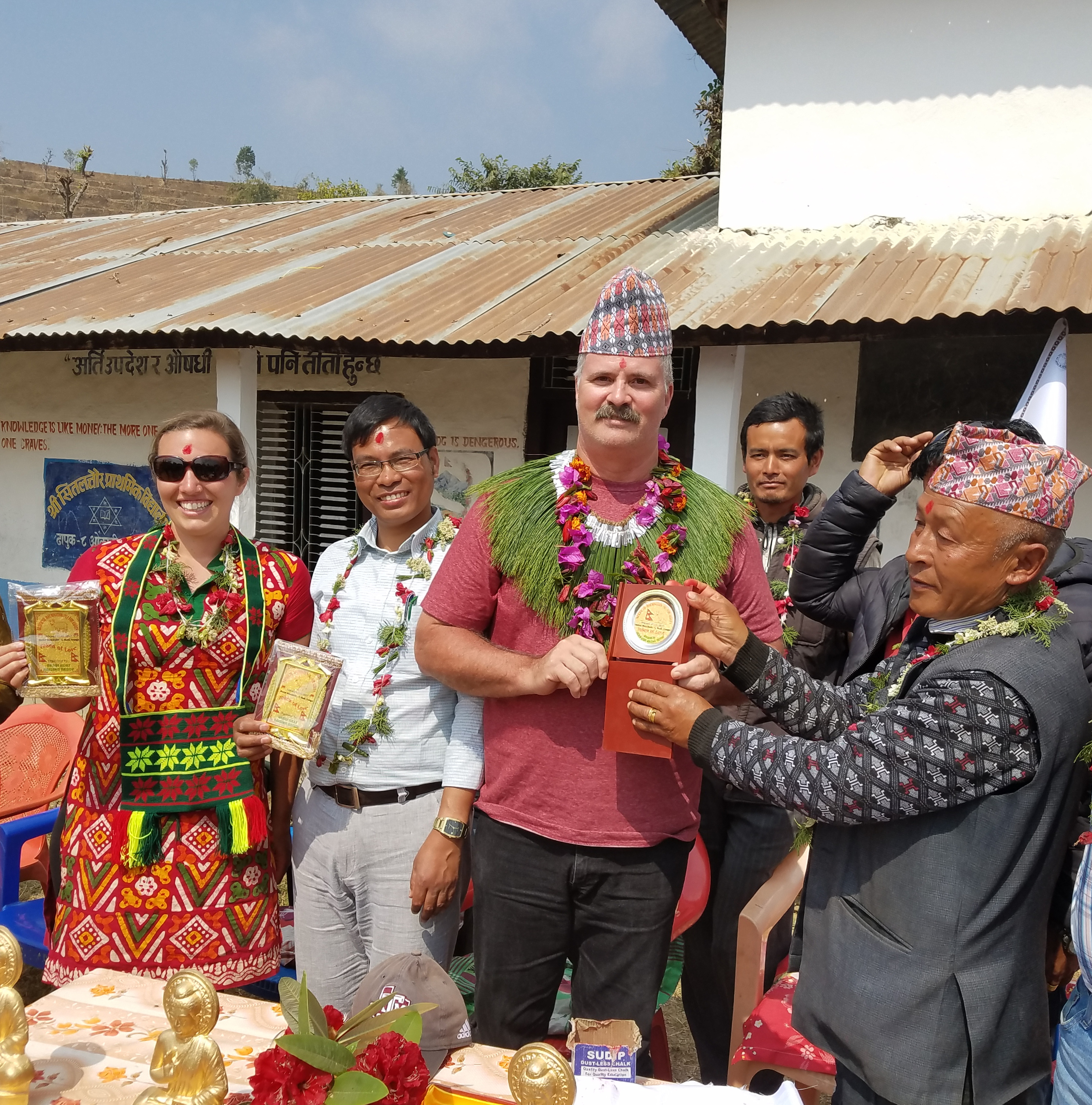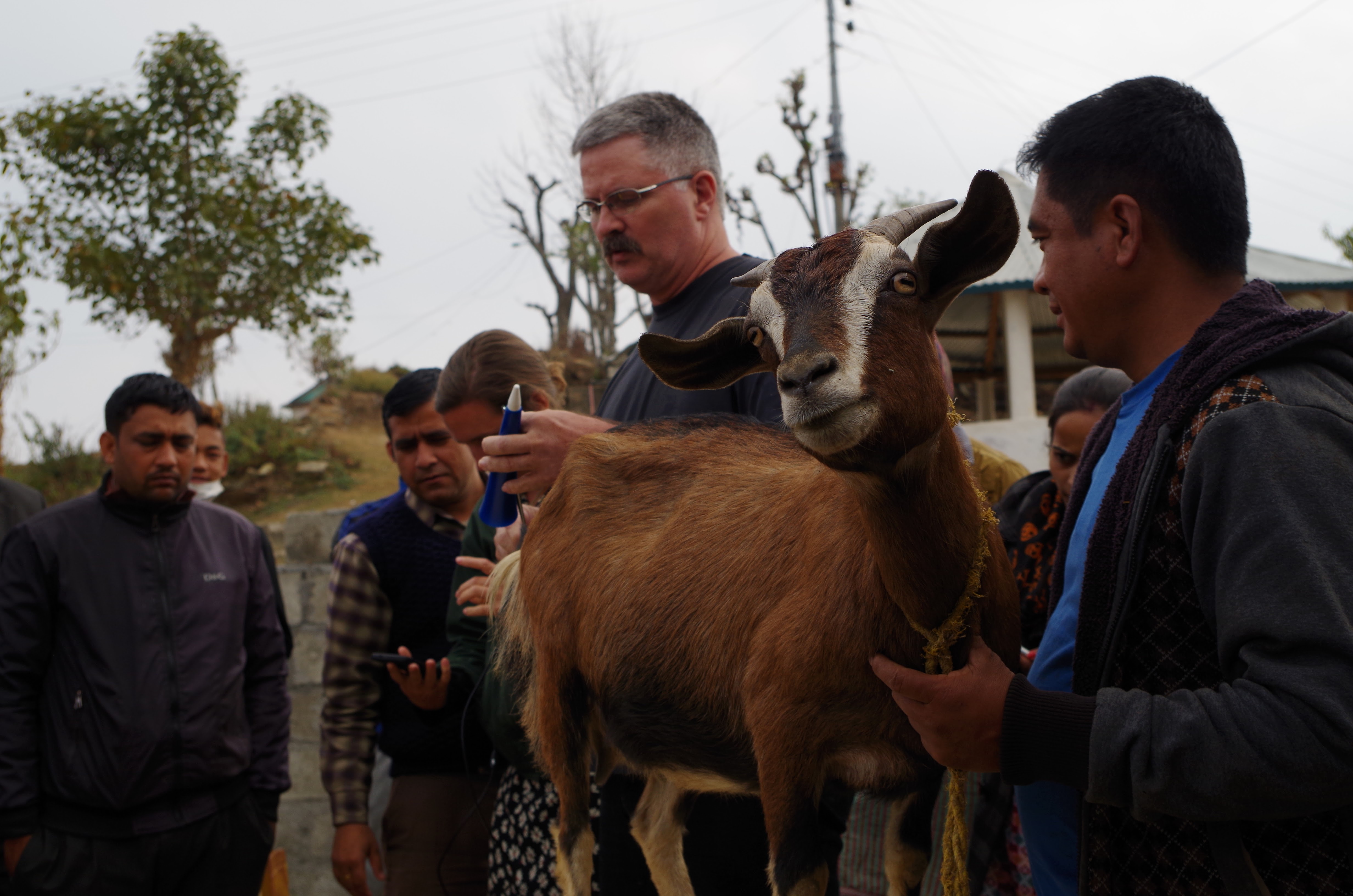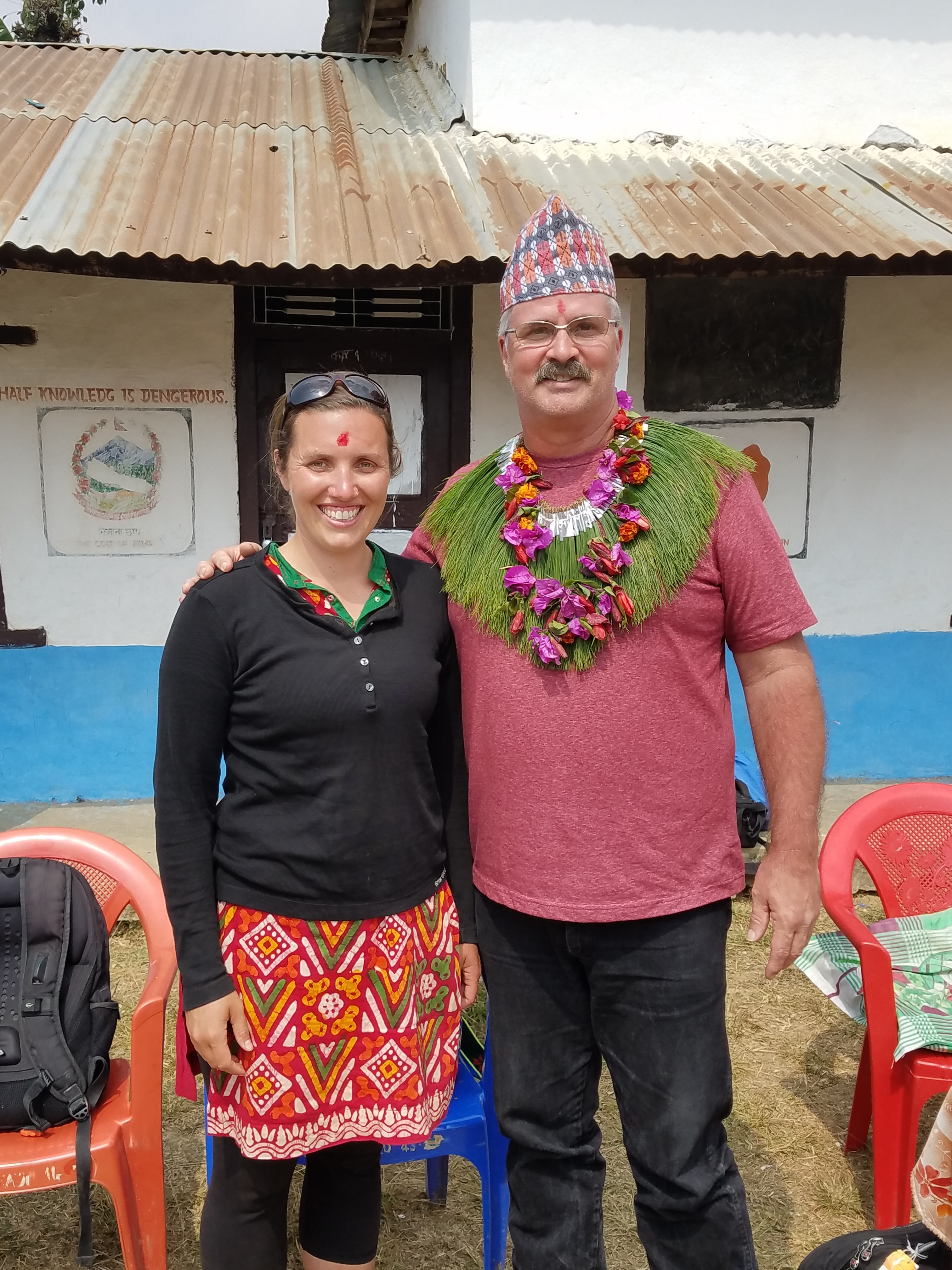
Volunteer Post
November Volunteer of the Month
Dr. Bill Foxworth
Our Nepal Farmer-to-Farmer staff have nominated, Dr. William (Bill) Foxworth, as the November Volunteer of the Month, because he is a “highly skillful, flexible volunteer and adjusted his hands-on training sessions for the assignment to best utilize locally available equipment and resources in Nepal.” Dr. Foxworth is the reproductive physiologist at the International Goat Research Center at Texas A&M University and is responsible for Artificial Insemination (AI) training at the center. He has also worked extensively in reproductive technology transfer in Africa and Latin America for both cattle and goats for more than 25 years. During his assignment, he conducted training for Okadi Goat Raising Group members, local service providers, and extension workers on AI technologies and practices to improve a youth-targeted goat breeding program. Sushil, one of training participants and Government of Nepal Extension Officer explained, “F2F volunteer William’s contribution is crucial for the country’s context in goat breeding and increased production.” After the training, Sushil facilitated AI in more than 150 goats, doubling the conception rate from their AI operations. Bill shares his thoughts below about his Farmer-to-Farmer experience.
Why did you want to volunteer?
As a research scientist, my goal has been to develop technologies that assist with livestock reproduction. Improvement in breeding technology leads to more efficient animal production and greater number of offspring. This is a foundation for feeding more people worldwide and that is my true aim. Volunteering in Nepal afforded me the opportunity to enhance the knowledge base in goat reproduction in a country that relies so heavily on the goat.

What was the highlight of your most recent volunteer assignment abroad?
For me, the highlight was generating the discussion of how to disseminate this reproduction technology in a manner that would best benefit the people of Nepal.
What made your Winrock volunteer trip distinctive?
Winrock’s infrastructure made the trip work seamlessly. Every step of the way was meticulously planned out with some flexibility and that allowed me to focus on giving my presentations and training sessions. It also allowed me to delve more deeply into the culture through the in country representatives, making my presentations better because I had intimate insight into my audience.
How does your experience affect your world view?
I have had the opportunity to work all over the world and each country I work in presents a new set of challenges from culture to infrastructure. Nepal presented me with a view of a country, that while being smaller in size and geographically highly varied, was a crossroads for several cultures and religions. Seeing their efforts to deal with their differences gives me insight into my own multicultural world and, hopefully, I impart it to my students, colleagues, friends, and family.
What advice would you give a new volunteer?
Enjoy your time. Utilize the in country experts to understand the people and cultures. Ask lots of questions. This will help you tailor your presentations and maximize the benefits to the audience.
How have your assignments made a difference in your own life?/Has your assignment caused you to do anything differently once you returned?
Working in Nepal, with the lack of some infrastructure and the availability of certain products, reminded me of the need to be flexible and resourceful. After returning, I was reinvigorated to work on and develop strategies for transferring agriculture technologies in global locations that may not have all of the energy or product availability that we have.
Why should people consider volunteering?
It is a truly rewarding experience. For me, having the opportunity to help people improve their ability to produce food and provide better foodstuffs to their fellow man, allows me to directly contribute to helping put food on someone’s plate.
How do you feel about the support from Winrock, whether before, during or after your assignments?
The staff, both here in the US and in Nepal, were of great help. I have a pretty hectic schedule every day and they took care of all the travel and logistics allowing me to focus my preparations on my presentations. Not speaking the language, I had some trepidation, but the staff in Nepal, and a well placed Peace Corp volunteer, made my communications flawless with the local communities. I must say, one of the unsung heroes in my time in Nepal was my driver. We were frequently on some white knuckle roads and his skill at maneuvering the mountainside allowed me to relax and enjoy the view.

When your friends/family find out that your volunteer assignment aboard, what do they say or ask?
The first question almost everyone asks is, “How cold was it?” Everyone imagines that Nepal is all like the base camp on Mt. Everest. They don’t realize that geographically it goes from low tropical jungle to the highest point in the world. The temperatures in the areas where we were working, Pokhara and Waling, were very pleasant in March. I will admit, while looking over the edge of some of the roads on which we were driving, I felt like I was on the side of Mt. Everest.
What do you do when you’re not volunteering?
I am a research scientist at the International Goat Research Center, Prairie View A&M University, Prairie View, Texas. I conduct research with goats in an effort to improve their reproductive efficiency, with an end goal of disseminating the information to limited resource farmers around the world.
Does anyone in your life play a role in supporting your involvement? In providing inspiration?
My family supports me by giving me the time to pursue my goals of helping others around the world. They cover my responsibilities at home while I am gone and I am eternally grateful for that.
Do you keep in touch with your host organization? [Host organizations are the organizations that receive volunteer support]
I am in touch by e-mail on occasion, but I am in regular communication by Facebook. Nothing makes me happier than seeing a post about people doing something related to the training we did.
How do you feel that your volunteer assignment has contributed to create a shared understanding across different cultures through person-to-person interactions?
My family is of blended cultures and I have had the opportunity to be educated in Japan and work in Africa, Europe, and Latin America. Each time I encounter a different culture, it reminds me that we are a diverse people. Working with individuals in Nepal offered me first hand insight to the unique cultures in Nepal and they added greatly to my understanding of the world, especially in a country that serves as a crossroad to many cultures. This experience also offered me insight into my own work and how best to present my knowledge in a manner that could serve this unique community.
You can read more about Dr. Foxworth’s volunteer assignment and Farmer-to-Farmer’s cooperation with Peace Corps in Nepal in this previous blog post.

